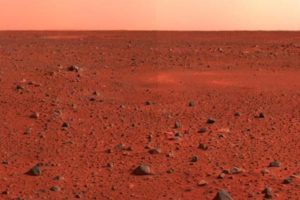I wonder what happened to The Mars One Project, led by Bas Lansdorp, who is planning to make a human settlement on Mars, with the first four settlers leaving in 2023? The cost of that was in the range of $6B which was being raised through applicant fees (over 200,000 applied), crowdfunding campaigns such as on indiegogo, selling various items related to the Mars One project, plus sponsorship through a planned reality tv show. Never heard from it since all the hoopla from a few years ago.
 The media attention on that Mars colony project, at that time, was met with skepticism considering how risky the mission is since it has never been attempted before. NASA hasn’t any plans in the near future to send a manned mission to Mars and only has the robotic Curiosity rover there on the surface and another robotic spacecraft MAVEN joining it for scientific experiments.
The media attention on that Mars colony project, at that time, was met with skepticism considering how risky the mission is since it has never been attempted before. NASA hasn’t any plans in the near future to send a manned mission to Mars and only has the robotic Curiosity rover there on the surface and another robotic spacecraft MAVEN joining it for scientific experiments.
And now we have billionaire Elon Musk who, since he founded SpaceX in 2002, has been focused on building a colony on Mars so that humanity can exist as a multi-planet species. He recently made the news of launching his BFR (Big Falcon Rocket or Big F**king Rocket), a rocket (with a booster system) being built that’s going to make the trip to Mars faster (three to six months) and can hold 100 or so (lucky) passengers with 40 cabins for them. First, by 2022, he wants to fly two cargo missions to Mars and then, by 2024, four more ships, two with passengers and the other two cargo-only ships.
SpaceX to its credit was the first commercial venture, previously done only through governments, that sent a spacecraft to the International Space Station and currently flies cargo there. Since it has won contracts from NASA (more than $4 billion), it is now under a NASA contract to fly astronauts there as well, which may be as early as next year.
Even though the company is planning to send two people for a trip around the moon possibly some time next year, and also wants to use rockets on earth for faster travel between long-distance destinations, their plan is ambitious since as so far they haven’t sent a single human into space, not even in low orbit on Earth, let alone on Mars.
But the real question is why would anyone want to leave a habitable planet, Earth, to settle on one that is not, Mars? It’s a one-way ticket with no option to return due to the enormous cost involved and the difficulty to enter the thin Mars atmosphere and land a heavy rocket there. And even if a rocket was to be built from there, the Mars settlers will have lost bone and muscle mass to such an extent that it will make it very difficult to gain it back to survive a trip and re-entry into the Earth’s atmosphere. Apparently no one thought of that. Unless SpaceX is going to be capable of getting around this, and all the other obstacles to making Mars habitable, as also has suggested terraforming Mars.
Here are 10 interesting facts about Mars that one should be aware of before making their decision for the one-way, no-return trip:
- It takes 6 to 8 months to get to Mars and that is only when Earth and Mars are astronomically at their closest point, which is every 2 years with a distance of 34.8 million miles (56 million km). Since both their orbits are not perfectly circular, the time can vary.
- Low gravity – 38% less than Earth making it tricky to enter the atmosphere, which also means you can jump 3 times higher and would weigh 62% less than you do on Earth.
- Extreme cold weather conditions since Mars doesn’t have a thermal blanket to retain heat energy. Average temperature is around -81 °F ( -63°C) and varies depending on the location and season, anywhere from 70 °F (20 °C), near the equator daytime summer, to -225 °F (-143 °C ) in the poles in winter. And the winters would be twice as long since a year on Mars is double the time span of Earth.
- High radiation levels due to the combination of a thin atmosphere and lack of a global magnetic field that is comparable to Earth poses an ongoing serious threat to life.
- Heavy dust storms from strong winds happen periodically which can engulf the whole planet and takes months for the dust to settle. This could be problematic if it enters or destroys equipment.
- With 40 spacecraft sent to Mars over 6 decades, no sign of life has been found and water cannot last long on the surface due to the low atmospheric pressure.
- No breathable atmosphere as the air there is mostly carbon dioxide with traces of oxygen..You will need a protected spacesuit to go to the Mars surface and without protection or if the suit gets damaged, you would more than likely die a painful death in a short span of time.
- The air is toxic to plants so none can be grown there and it is uncertain plants can be grown in an artificial environment there as thus far plants cannot even be grown in Space.
- Not much sunlight as it is farther away from the Sun in comparison to Earth and that is the reason the atmosphere is very thin, cold and dry.
- Highly complex life support measures are needed on Mars and if they fail, there is no way to survive other than in an artificial environment. Also is unknown that humans can physically adapt to living as permanent residents there and certain medical conditions will be either be impossible or difficult to treat there.
When you see the barren and hostile environment Mars presents, you would wonder why anyone would want to settle there in the first place. If someone is looking for extreme adventure with harsh weather conditions, they can be found on earth to attempt, such as Antarctica, but remember nothing on earth comes even close to the extreme conditions found on Mars.
The Mars One Project leader, Bas Lansdorp, said he always had a dream to go to Mars but he has not volunteered himself to be the first or second settlers, making excuses why he cannot go and just saying one day in the future he would like to take his family there, which can be interpreted as when it is safe to do so, if ever. Elon Musk wants to die on Mars, but not on impact. I wonder if he would volunteer to be the first settlers there too. I’m doubting it as probably would only go there if, and when, there was a city built with inhabitants being able to survive there. Why then would anyone want to be the first human experiment that could very well be a fatal mission to Mars?
It seems wasteful to waste money on a wasteland that is too risky to attempt to survive in. Not only that, you would leave everything you know and love behind for something that isn’t even worth achieving even from a scientific perspective, as plenty of information about the planet can be obtained from the orbiters and rovers that have already been sent there which has given scientists insight into Mars. If a manned mission does eventually go there in the far-off future, it should be for scientific purposes and not to actually live permanently on the planet.
Mars certainly is far from the greener pastures that you would find here on Earth.


Think about it, pink hazy sky, extremely cold, rocky with craters everywhere and very dusty, not to mention low levels of oxygen and high radiation levels. The picture seems bleak compared to the one you find on Earth, making one appreciative to be where they are.
Exploring Mars doesn’t mean anyone has to create a colony there. Much better idea is to sustain Earth so it doesn’t become a Mars.
29/365



